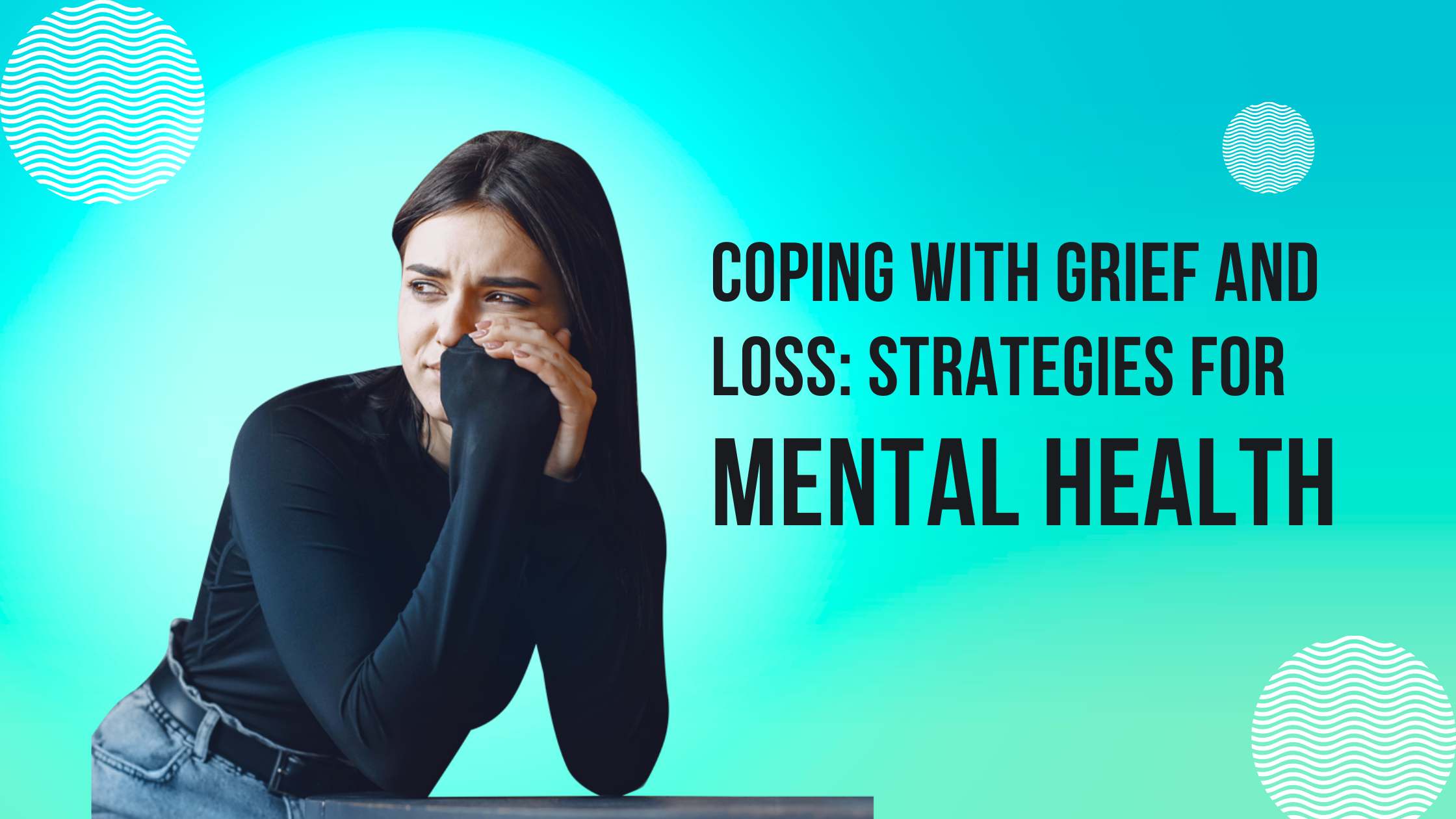Grief and loss are universal experiences that touch every individual at some point in their lives. Coping with the emotional upheaval that accompanies these challenges is an essential aspect of maintaining one’s mental health. The journey towards healing requires strategies that address the multifaceted nature of grief, from emotional turmoil to finding a new sense of normalcy. In this comprehensive guide, we will delve into various coping strategies that can empower individuals to navigate their grief and loss effectively.
Coping with Grief and Loss: Strategies for Mental Health
Grief can manifest in a myriad of ways, affecting emotional, psychological, and even physical well-being. To effectively cope with grief and loss, it’s crucial to adopt a holistic approach that combines self-care, support systems, and professional assistance.
Acknowledging Your Emotions
Coming to terms with your emotions is the first step towards healing. Grief often brings about a range of feelings, including sadness, anger, guilt, and even relief. It’s essential to acknowledge these emotions without judgment.
Seeking Support from Loved Ones
Isolation can exacerbate the pain of grief. Reach out to friends and family who can provide a listening ear and a shoulder to lean on. Their support can make a significant difference in your healing process.
Professional Counseling and Therapy
Therapeutic interventions with trained professionals can offer invaluable guidance during times of grief. Trained therapists help individuals navigate complex emotions and develop healthy coping mechanisms.
Embracing Self-Care Practices
Engaging in self-care activities can promote mental and emotional well-being. Activities such as exercise, journaling, meditation, and spending time in nature can help alleviate stress and foster healing.
Creating a New Routine
Loss can disrupt established routines, leading to a sense of instability. Crafting a new routine can provide a sense of control and purpose, aiding the healing process.
Connecting with Support Groups
Joining support groups or online communities of individuals who have experienced similar losses can offer a sense of belonging and understanding. Sharing experiences can be cathartic and reduce feelings of isolation.
Honoring Memories
Preserving memories of the loved one can be a healing practice. Creating a scrapbook, organizing a memorial event, or participating in activities that hold significance can help cherish their memory.
Setting Realistic Expectations
Grief doesn’t follow a linear path, and healing takes time. Setting realistic expectations for your emotional journey can alleviate unnecessary pressure.
Exploring Creative Outlets
Engaging in creative activities such as art, music, or writing can serve as a channel for emotions that are difficult to express verbally.
Practicing Mindfulness
Mindfulness techniques can help ground you in the present moment, reducing anxiety about the future or dwelling on the past.
Strategies for Providing Support
Offering Empathetic Listening
When supporting someone who is grieving, lending a compassionate ear without judgment can provide immense comfort.
Respecting Individual Grieving Styles
Grief is a deeply personal experience, and individuals cope in their unique ways. Respecting their process is essential.
Providing Practical Assistance
Practical support, such as helping with daily tasks, can alleviate some of the burdens that grieving individuals may face.
Avoiding Clichés and Platitudes
Well-intentioned phrases can sometimes feel dismissive. Instead, offer sincere words of comfort and empathy.
Coping with Grief: FAQs
How long does the grieving process usually last?
Grief is a highly individual journey, and there’s no set timeline. Some people may start to feel better after a few months, while for others, it might take years. It’s essential to be patient with yourself.
Is it normal to experience moments of happiness amid grief?
Yes, it’s entirely normal. Grief is a complex emotion, and moments of happiness or even laughter can coexist with sadness. Emotions during this time can be unpredictable.
When should I consider professional therapy?
If you find that your grief is significantly impacting your daily life, relationships, or ability to function, seeking the help of a therapist is a wise decision. Therapy can provide tools to navigate your emotions effectively.
How can I support a grieving friend when I live far away?
Even if you’re not physically present, maintaining regular communication through calls, texts, or video chats can provide much-needed emotional support. Sending thoughtful messages or care packages can also show your love.
Will the pain of grief ever completely go away?
Grief tends to change over time rather than disappear entirely. As you heal, the pain might become more manageable, and you’ll find ways to integrate the loss into your life.
Can children grieve differently from adults?
Yes, children may express grief differently based on their age and understanding of the situation. It’s essential to provide age-appropriate explanations and create a safe space for them to ask questions.
Conclusion
Coping with grief and loss requires a combination of self-compassion, support from loved ones, and sometimes professional assistance. The journey towards healing is unique for each individual, and there’s no one-size-fits-all approach. By embracing strategies that address emotional, psychological, and physical well-being, you can navigate the complexities of grief while nurturing your mental health. Remember that healing takes time, and seeking help when needed is a sign of strength.

